The Missing Piece
Concerns

FEBRUARY 2023 | Volume XVI, Issue 1 Alliance Defending Freedom An Abortion Survivor Tells Her Story PAGE 17 Defending Life In A Post-Roe World PAGE 19 How One Professor’s Harmless Joke Cost Him His Job PAGE 21
Over Political Correctness Deprive A City’s Firefighters Of Spiritual Counsel And Support
Senior Writer




Chris Potts
Art Director
Jonathan Marshall

Photography
Bruce Ellefson Contributors
Jen Ingeneri
Tyson Langhofer
Melissa Ohden
Angeline Riesterer
Jane Scharl
Nick Schober
Kristen Waggoner

1
2023
XVI, Issue 1
February
Vol.
Editor Karen Kurtz
Facebook.com/AllianceDefendingFreedom Twitter: @ADFLegal Instagram.com/AllianceDefendingFreedom YouTube.com/AllianceDefends Questions or comments on this issue? Email Editor@ADFlegal.org. 15100 N. 90th Street, Scottsdale, AZ 85260 ADFlegal.org | 800-835-5233 Referral to websites not produced by Alliance Defending Freedom is for informational purposes only and does not constitute an endorsement. DONATE: ADFlegal.org/fj - donate Contents COVER STORY 9 The Missing Piece Concerns Over Political Correctness Deprive A City’s Firefighters Of Spiritual Counsel And Support COLUMNS 2 Minutes With Kristen Running Toward The Fray 3 News & Quick Takes Case Updates From Around The World 5 Special Feature Ministry Friends’ Generosity Helps Ensure ADF’s Success 8 Case Update ADF At The Supreme Court 17 My View I Survived A Failed Abortion Attempt 19 Q&A Erin Hawley On The Continuing Challenge Of Defending Life In America 21 Opinion This Professor Was Fired For Writing A Harmless Joke 9 5 8 19
Minutes With Kristen Running Toward The Fray
By Kristen Waggoner, CEO, President, & General Counsel
Growing up, my father was also my school’s principal. I’d find myself in his office quite a bit. Sometimes because I had gotten into trouble. But most often just because I was waiting for him in the quiet hours before or after school, or I wanted to share with him something that had happened.
In those times and throughout my childhood, my dad always pushed me to discover my talents — and then use those talents to honor God. He said I’d waste my life if I didn’t find and pursue God’s purpose for it.
After many of those talks, at the age of 12 or 13, I knew God was calling me to protect religious freedom.
As I went from high school to college to law school, I realized why: Religious freedom is our first freedom, and our other liberties are directly connected to it. I wanted to be able to freely share the Gospel, and to ensure that others — including my own children and future grandchildren — would be able to live out their faith.
When I came to Alliance Defending Freedom in 2013, I never thought I’d one day serve this ministry as CEO, president, and general counsel. But God had other plans. I stepped into my new role on October 1. And as I look to the future, I’m filled with excitement, anticipation, and a deep, solemn resolve.
Even before coming to ADF, I appreciated the ministry’s comprehensive strategy to protect freedom inside and outside our nation’s courtrooms and legislative halls. That’s not something any organization can accomplish alone. It takes a strong alliance.
As all of us at ADF have co-labored with alliance partners and Ministry Friends, God has helped us take on some challenging issues together. I believe He’s about to call on us do even more, in counterpoint to a culture that’s lost and increasingly hostile to our core convictions.
There is often a cost to standing for freedom. But — as we’ve seen many times over the years since ADF’s founding — embracing that cost can result in significant legal victories. And it always results in eternal ones.
I’m incredibly thankful for our partners who stand with us to protect religious freedom, free speech, life, marriage and family, and the rights of parents. My promise is that, in the challenging days ahead, ADF will always run toward the fray, not away from it. And we will be faithful to Christ in working to keep the door open for His Gospel.
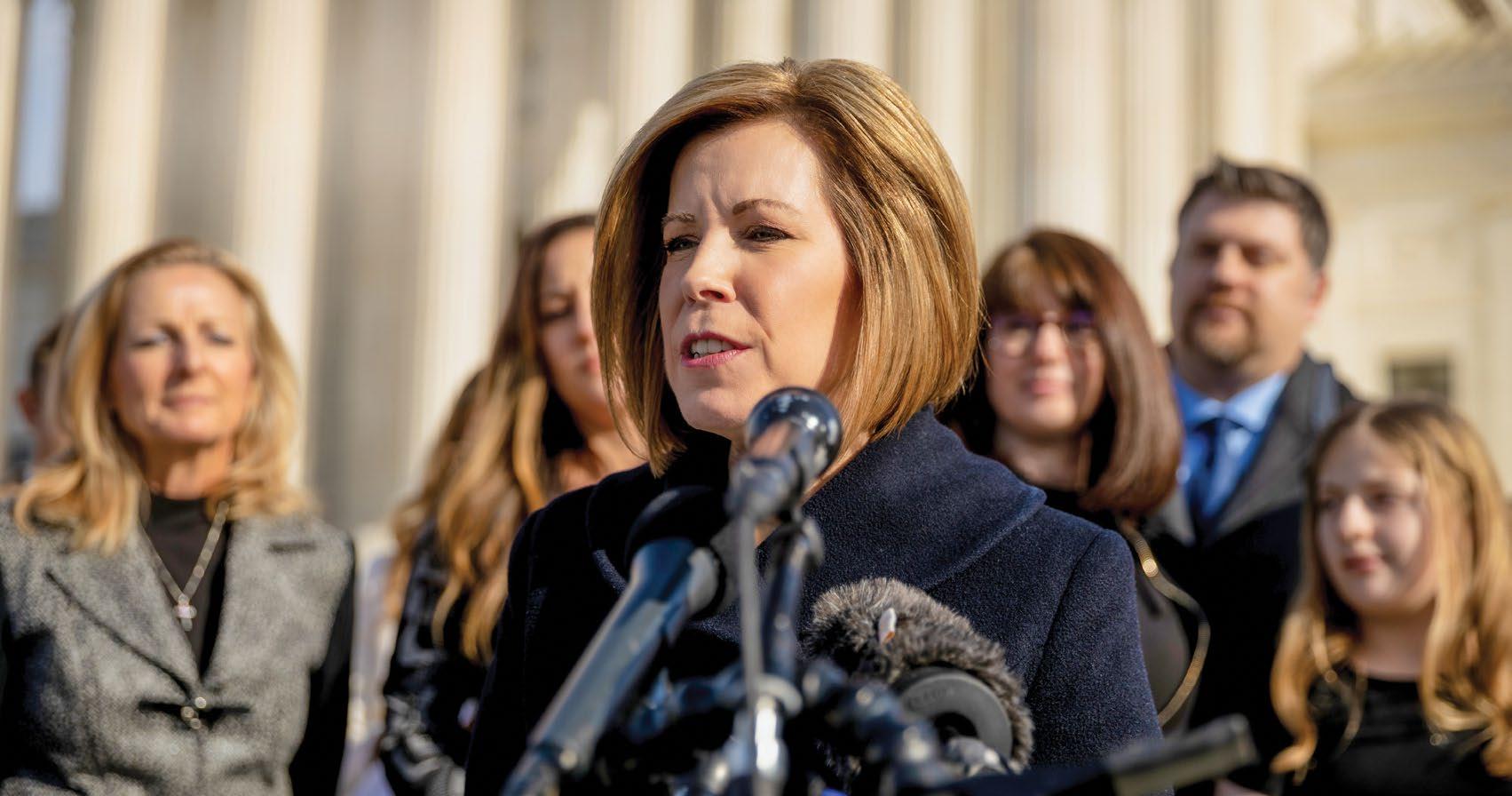
2
Kristen Waggoner speaks at a press conference on the steps of the U.S. Supreme Court following her argument on behalf of web designer Lorie Smith (see page 8).
News & Quick Takes
Case Updates From Around The World

Savannah, Georgia
A Georgia substitute teacher was fired from her job after she expressed concerns over a picture book being read to her children at school.
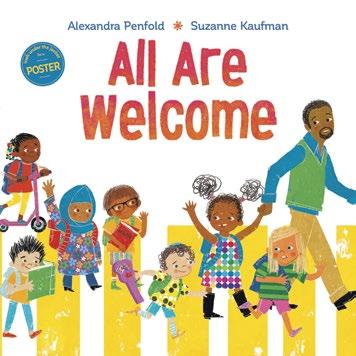
Lindsey Barr worked for Bryan County Schools, mostly subbing at McAllister Elementary School, where two of her children currently attend. At the beginning of the 2022-23 school year, Barr became aware of a book, All Are Welcome, that would be presented to every elementary class as part of a new “read aloud” library program. The book contains several illustrations of samesex couples parenting and expecting children.
Barr spoke to the McAllister principal to ask that her children be excused from the reading program, noting that the book’s illustrations conflict with her religious views on marriage and family. Soon after expressing her views, she was fired from her job and can no longer substitute at any Bryan County school. ADF attorneys are representing Barr in a lawsuit against the district.
Manassas, Virginia
Paige Casey
Casper, Wyoming
A Wyoming homeless shelter successfully defended its right to hire only employees who share the Christian nonprofit’s religious beliefs.
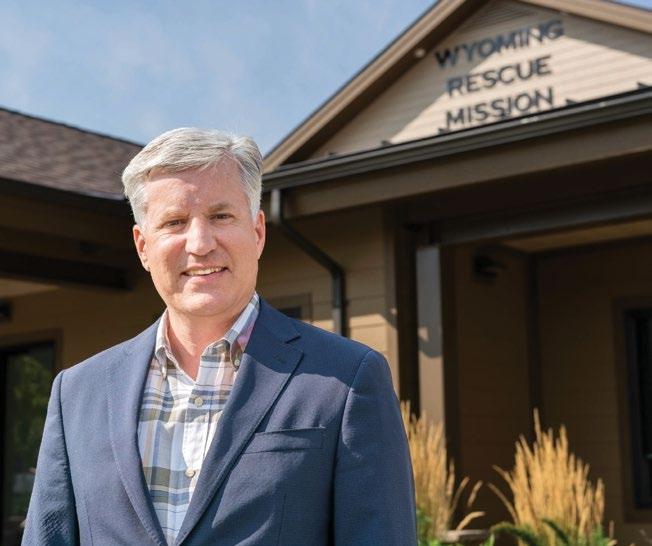
The Wyoming Rescue Mission provides shelter, free meals, clothing vouchers, job training, and recovery programs to the community. But its overarching mission is to spread the Gospel of Jesus Christ. In 2020, the mission decided not to hire a self-proclaimed non-Christian for one of its store associate positions a role that requires teaching the mission’s recovery program participants how to spread the Gospel, model Christ, and disciple one another.
The applicant filed a discrimination charge, and government officials found probable cause that the mission violated the Wyoming Fair Employment Practices Act of 1965 and Title VII of the Civil Rights Act of 1964 for refusing to hire the applicant though neither law applies to religiously based employment decisions made by faith-based organizations.
ADF attorneys filed suit, and the government agreed as part of a settlement that the mission may hire only “those individuals who agree with and live out the mission’s religious beliefs and practices.”
A Virginia nurse practitioner filed a lawsuit against CVS Health after she was fired for declining to provide abortion-inducing drugs to customers at its MinuteClinic medical facilities.
Paige Casey follows the teaching of her Catholic faith, which prohibits her from providing or prescribing any drug that can cause an abortion, including morning-after pills such as Plan B. CVS accommodated her
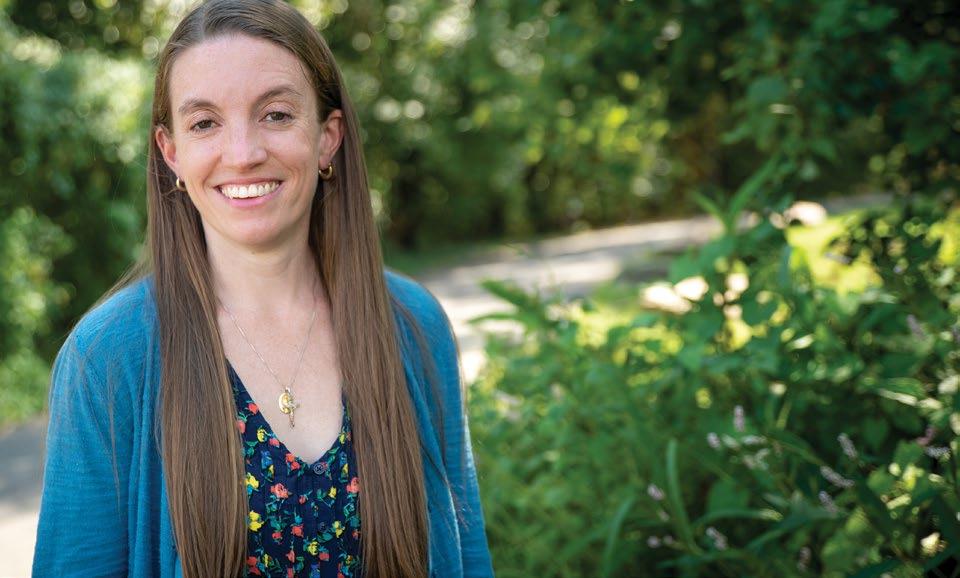
religious convictions about the abortion drugs for three years and gave her a merit-based pay increase just two days before she was fired.
Casey’s dismissal violates the Virginia Conscience Clause, which prohibits employers from discriminating against employees who decline to participate in providing abortion drugs because of their religious or ethical beliefs. ADF attorneys are suing CVS on Casey’s behalf to prevent the company from forcing health care professionals to violate their faith to keep their jobs.
3
Brad Hopkins, executive director, Wyoming Rescue Mission
‘‘
Corporations like CVS cannot defy the law by firing professionals who want to work consistently with their faith.
Denise Harle, ADF Senior Counsel
Salt Lake City, Utah
At ADF’s request, a Utah school district has made changes to uphold students’ freedom of speech.
Representing the Turning Point USA chapter at Copper Hills High School and one of its members, Matthew Parkinson, ADF attorneys sent a letter to Jordan School District officials after the school unlawfully discriminated against the group because of its speech.

Mexico
A university in Mexico dismissed faculty urgings to punish a psychology graduate after he voiced his support for traditional values in his valedictorian speech.
As the top student in his class at the Autonomous University of Baja California, Christian Cortez Pérez earned the right to deliver the commencement address at his graduation ceremony in June. In his speech, he voiced his enthusiasm for the importance of family and the
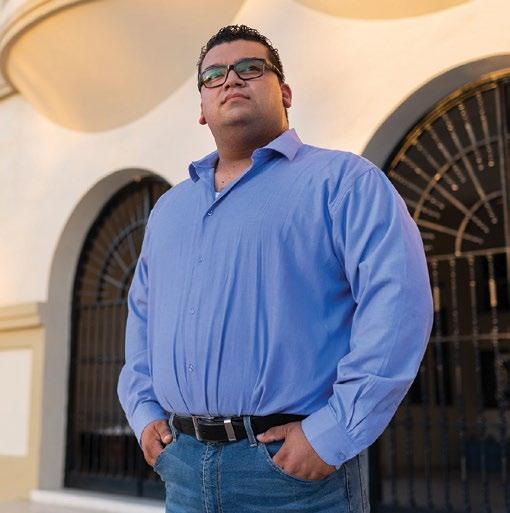
In response, a group of professors published a manifesto calling on university officials to withhold Pérez’s professional license, withdraw his merit award, and notify Mexico’s psychology associations about his statements. Pérez responded with a counterclaim, seeking justice from the university with the support of ADF International.
In a September ruling, the University Council held that “the arguments presented by the aggrieved party [the professors] are unfounded, as well as the sanctions requested, for which reason the appeal filed is dismissed.”
Shortly after the chapter formed in 2021, members set up a table during lunch to share their conservative views, displaying posters with messages such as “Always Love America” and “I’m a Conservative.” Though the group had received the school’s approval to set up the table, the assistant principal instructed the chapter’s officers to take down their posters. She then shut the table down and marched the chapter’s officers to the principal’s office.
After ADF attorneys sent the letter outlining how district and school officials had been hostile to the group’s views, the district amended its policy to include safeguards against school administrators discriminating against certain groups based on the viewpoint of their speech.
Belgium
The European Court of Human Rights ruled that Belgium violated the right to life in a major case involving euthanasia. Tom Mortier, a Belgian man whose mother died by lethal injection in 2012, challenged the country’s euthanasia law in the case.
Mortier’s mother was euthanized based on a diagnosis of “untreatable depression.” But she was physically healthy, and her psychiatrist of more than 20 years doubted that she satisfied the requirements of the euthanasia law. What’s more, doctors never contacted Mortier or any other family member to inform them of her intentions. Mortier learned of her death the day after she was euthanized.
In October, the court found that Belgium officials violated the European Convention on Human Rights by failing to properly examine the circumstances leading to her euthanasia. The court, however, did not rule that there was any violation of Belgium’s legal framework for the practice of euthanasia. Euthanasia has been legal in Belgium since 2002.
ADF International represented Mortier before the court.
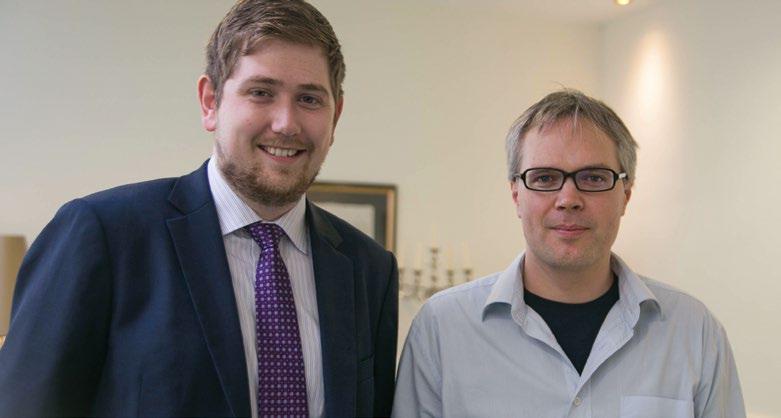

4
‘‘
What happened to me shows how dangerous it is when professors with agendas try to punish students with whom they disagree.
Christian Cortez Pérez
Christian Cortez Pérez
Tom Mortier (right) with Robert Clarke, director of advocacy, ADF International
value of unborn life.
A Gift For Giving
Ministry Friends’ Generosity Helps Ensure ADF’s Success
By Nick Schober
Asingle dollar bill, creased and worn from adventures unknown, stands proudly framed on a shelf just inside the front doors of the Alliance Defending Freedom Scottsdale office.

Above it, a handwritten note in simple black ink on a white page reads:
Dear ADF,
Enclosed is $1 in cash.
I will send more later but I only have $7 left to make it through the week.
I believe in what you are doing and only found out about you today when I picked up an article about you at church.
The note and the bill are a cherished reminder that gifts from ADF supporters are far more valuable than the dollar amount they represent.
“Every donation we receive, large or small, is a sacrificial gift,” says Lance Bauslaugh, ADF senior vice president of development, “coming because the Ministry Friend has decided this is where God wants them to invest.”
ADF was launched in the early 90s by respected leaders in the Christian community, who gave the new ministry a very specific mission: to reverse the growing legal threats to religious freedom that were constantly being levied against people of faith.
But diving headlong into legal battles that could drag on for years was not going to be cheap. An estimated $250,000 would be needed just to get the doors open.
But even after they were, the bank accounts showed resources just south of $5,000.
Fundraising was not originally at the top of the to-do list for ADF’s first president and CEO, Alan
5
Every donation we receive, large or small, is a sacrificial gift, coming because the Ministry Friend has decided this is where God wants them to invest.
‘‘
Lance Bauslaugh
ADF Senior Vice President of Development
Special Feature
Sears, but it quickly became abundantly clear that it needed to be. Unfortunately, the prevailing cultural winds were not at his back.
“There was a lot of distrust within the community, and especially with lawyers,” Alan says. “A number of legal organizations would last a few weeks, a few months, a few years, take a lot of money, and disappear.”
Perhaps most egregious were the scandals in the faith community, all dealing with financial impropriety. “It’s where I got my famous phrase: ‘If they have a fish on their card, run,’” Sears says, “because basically second-rate stuff was being done in the name of Jesus.”
Regardless, Alan stepped out in faith, understanding that the message he was sharing needed to be warm, clear, and specific.
“I made a decision that we needed to be relationship-based. From the very outset, we basically said, ‘Well, let’s go see people.’”
See people they did. Alan and his wife, Paula, spent the next 14 summers traversing the country, cultivating relationships, letting potential Ministry Friends get to know them and the work of ADF. The response was overwhelming.
Alan fondly recalls one visit to a neighborhood so rough that he urged Paula to stay in the car with the engine running while he made sure they were at the right house. When he saw that it was, she joined him.
“She comes on in and their house is … barren,” he remembers. “Just a couple of chairs. In the living room is what appears to be a seat from a van parked out on their driveway.” Their hosts were cheerful, gracious, and encouraging — and shared a secret.
“Since we knew you were coming to visit, and needed a place for you to sit,” they said, “we moved the seat in from our van.”
It dawned on Sears that this family had decided to live without furniture, because they wanted their children to have a future in which they could freely live their faith. And they trusted ADF as an organization that could make it so.
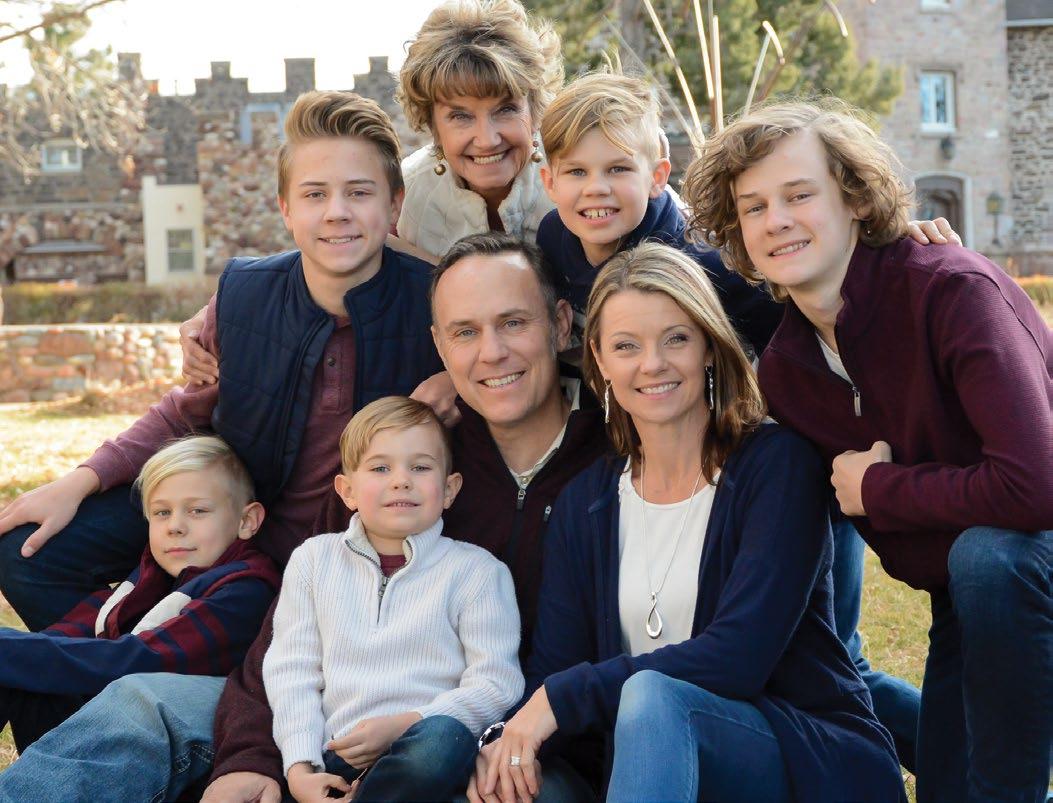
Alan and Paula left that night humbled and in awe, with a very clear confirmation that the relationships formed with these Ministry Friends — and the trust they placed in ADF — were easily more valuable than any dollar amount.
And worth protecting at any cost.
Decades later, new relationships with Ministry Friends are forming every day, resulting in nearly 109,000 partnerships as of late 2022. Each one plays its role in keeping the door open for the Gospel, not just for this generation, but many more to come.
Meet a few of those standing alongside ADF to accomplish that goal.
Aaron and Merinda Voorhees
Voorhees are generous because God is generous.”
Aaron and Merinda stamped that maxim on their hearts early on, although Aaron is quick to credit his wife for its staying power.
“She, in particular, was very, very big on giving in our need,” he recalls, “and I learned a lot about giving because of her.”
The “need” Aaron references hearkens back to 2003. Times were much leaner, and the young married couple was serving their local church as youth leaders.
“It was very, very difficult for the first 10, 15 years,” he says, but “even when it didn’t make financial sense, we gave, and we gave, and we gave. Sometimes it was amounts where I was like, ‘Oh man, I don’t even want to see it. Don’t tell me about it.’”
6
“
The Voorhees family
Much is different now. Aaron owns and operates a construction company that builds car washes, a design company that designs car washes, and, for good measure, a manufacturing company that creates them.
Merinda, along with a dear friend and “homeschoolmama-in-arms,” co-founded Journey Academy in their home state of Colorado. Leaning on her own teaching experience, Merinda has grown the Christian charter school from two families in the fall of 2019 to 55 families (and nearly 100 students) just three years later.
Aaron and Merinda began supporting ADF partly because they live just down the road from the ministry’s longtime client and friend Jack Phillips.
“I read the articles [about Jack] and realized, ‘Oh, my goodness, he lives a half-hour away from us,’” Merinda says.
“We as Christians have lost so much ground,” she says. “If you don’t change the laws, you can’t change the culture. A Generational Win for ADF has a profound effect on our society and the course of the next generation.”
The Voorhees have a constant reminder of that next generation in the form of five strapping boys, ranging in age from 6 to 17.
“Life, liberty, the pursuit of happiness — [what’s happening in our culture] limits all of that,” Aaron says, including “the ability of our sons to give and operate and do what they feel the Lord has called them to do.
“You can’t look [at what’s going on] out there without saying, ‘Wow, things are falling apart.’ Every bolt, every screw, every seam is coming apart. Why? Well, there’s a flood of the enemy coming in, and there’s very few on the front lines. ADF is the standard on the front lines.”
Jim Pendleton
The proprietor of his own engineering business in Texas, Jim Pendleton found success early on in his career, but that success was fleeting. What followed, he says, were several “character-building” years. But Jim is thankful to have had them.
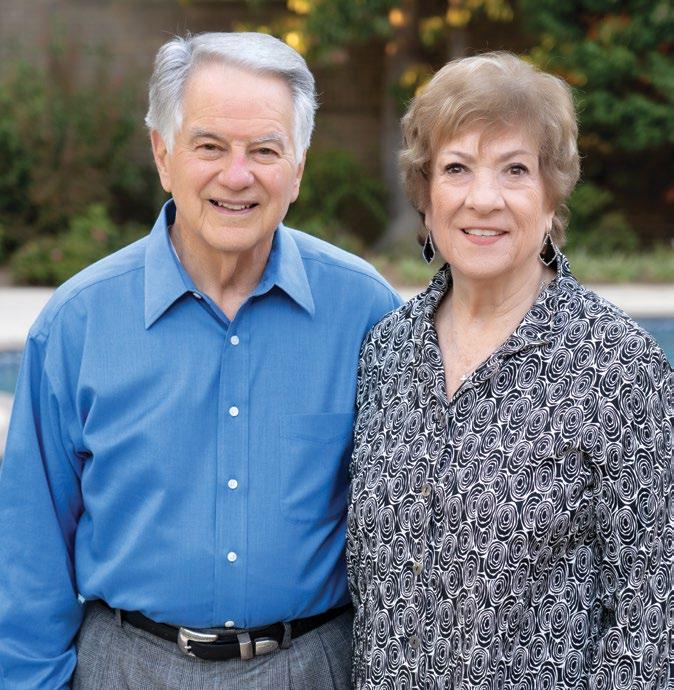
“It made me realize just how blessed and fortunate we have been,” he says. “It made me appreciate [how much] God’s immense grace afforded us. As a result, I felt an obligation to share it. I would not have been as effective as I am today without going through those difficult times. And I would not be as generous.”
The list of organizations Jim and his wife, Carol, support is long and varied, but several years ago, Jim
joined the ADF Ambassador program, an active network of volunteers who engage and mobilize others within their sphere of influence.
“A close church friend and an ardent Ambassador worked on me for a year to get involved,” Jim says. “I saw and felt the need and potential to benefit and impact ADF’s growth.”
As someone who built his own business from the ground up, he says, he has always understood the necessity of securing the resources and tools to accelerate growth. To that effect, he has supported the Ambassadors by funding a state-of-the-art Ambassador Community website, as well as a growth campaign for the Ambassador Captains program.
“The Ambassador program always struggled for position, growth, resources, and funds,” he says, but “I believe the ADF Ambassadors were positioned to make an impact for the cause of Christ. And I, like many Ambassadors, want to make an impact.”
In Jim’s eyes, what truly sets ADF apart from other organizations is the commitment to building an alliance. He has enjoyed a front-row seat through the years as ADF’s network of attorneys has grown to over 4,600, resulting in over 1 million pro-bono hours of service to the ministry’s clients.
“What the legal team has given up in private practice — look at the case load, the number of [requests for help]. It’s phenomenal.”
7
VISIT: Explore ways you can partner with Alliance Defending Freedom at ADFlegal.org/fj-donate
Jim and Carol Pendleton
‘‘
There’s a flood of the enemy coming in, and there’s very few on the front lines. ADF is the standard on the front lines.
Aaron Voorhees, Ministry Friend
Case Update ADF At The Supreme Court
U.S. Supreme Court
Hears Arguments In Pivotal Free Speech Case
In a case with profound implications for the free speech of all Americans, Alliance Defending Freedom CEO, President & General Counsel Kristen Waggoner presented argument at the U.S. Supreme Court on December 5 on behalf of Denver-area graphic artist and web designer Lorie Smith.
The case, 303 Creative v. Elenis , concerns a Colorado law that requires Lorie to communicate custom messages inconsistent with her beliefs. She wants to create custom websites celebrating God’s design for marriage between one man and one woman.
State officials and a federal appeals court acknowledge that Lorie works with people from all walks of life (including those who identify as LGBT), that she chooses what to create based on the message requested, and that every custom website she creates conveys a unique message. But they also would force her to create custom websites celebrating views of marriage that contradict her own.
Free speech is for everyone,” Waggoner says. “No one should be forced to say something they don’t believe. And Lorie works with everyone. Whether she custom designs a website or graphic always turns on what the message is, not who is requesting it.
“Like most graphic designers, every word she writes, every graphic she designs, and every custom website she crafts expresses a unique message — one that must be
consistent with her beliefs, areas of passion, and personal expertise. Americans should be free to express their ideas even if the government disagrees with them. That’s true for Lorie just as much as the LGBT graphic designer, which is why a win for Lorie is a win for all Americans.”
“The U.S. Supreme Court has never permitted the government to compel speech or require silence,” says U.S. Senator Ted Cruz of Texas, who along with Senator Mike Lee of Utah led a friend-of-the-court brief supporting Lorie’s constitutional right to create freely. “Instead, it has continually affirmed that the government cannot dictate what an individual person must say or believe.”
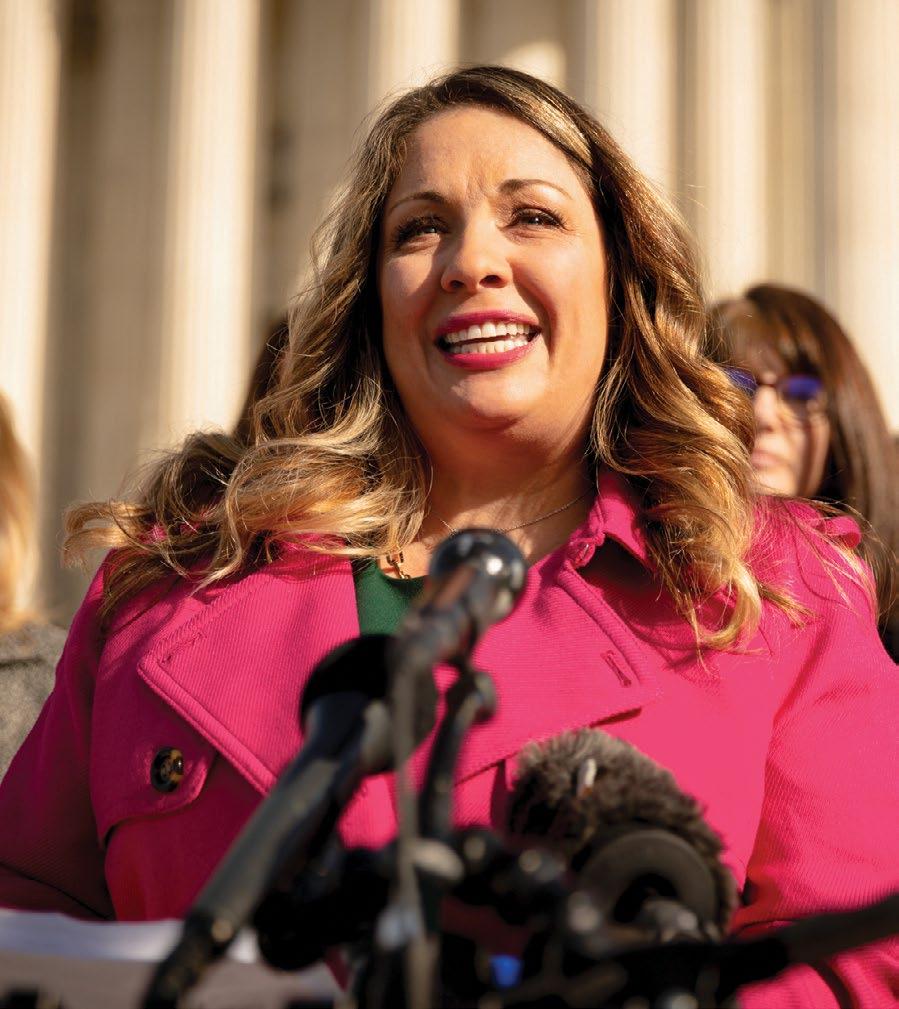
Colorado is trying to force me to create custom, unique artwork to promote ideas inconsistent with my faith and the core of who I am,” Lorie told a crowd of supporters at a press conference following the Supreme Court arguments. “No government official should be able to do that to any of us.”
An estimated 34,000 people followed the day’s arguments online via social media. A decision in the case is expected by early summer.
8
Lorie Smith addresses the press following arguments in her Supreme Court free speech case.
‘‘
Colorado is trying to force me to create custom, unique artwork to promote ideas inconsistent with my faith and the core of who I am.
Lorie Smith
“ “
You see the face of death in all of its expressions. ‘I am the resurrection and the life’ takes on a different form.
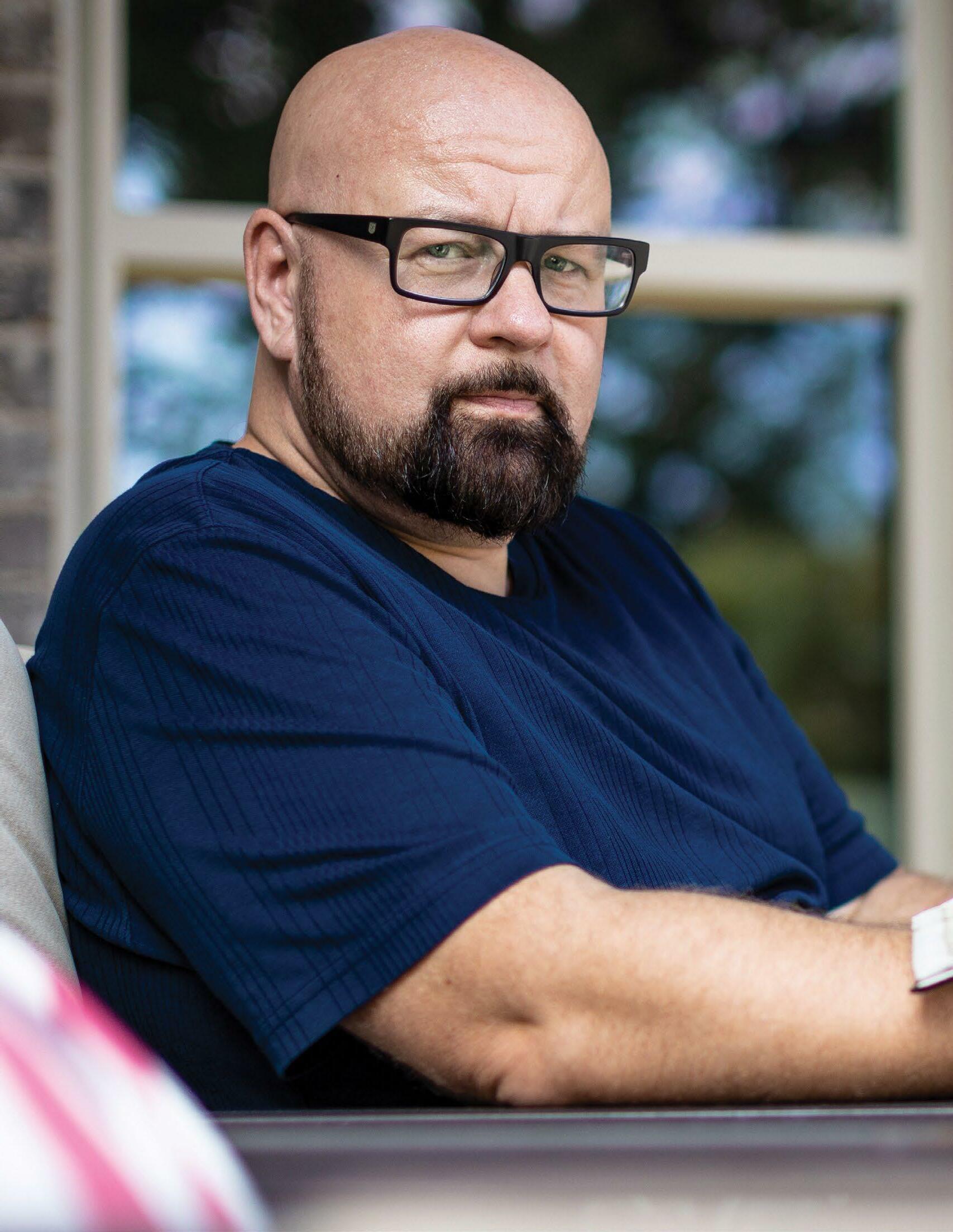
9
‘‘
Dr. Andrew Fox
The Missing Piece
Concerns Over Political Correctness


Deprive A City’s Firefighters
Of Spiritual Counsel And Support
The ice storm was the most savage to hit Austin in years. An impoverished family, shivering in their small, dilapidated house, lit a fire that night to keep warm. A fire … in a house with no fireplace. The smoke killed them. Then the house went up in flames.
Now, paramedics carry the charred remains outside, where flashing blue lights illumine the scene. Andrew Fox, the firefighters’ chaplain, covers the bodies with blankets, then kneels beside them to pray. He moves to the back of the fire engine, watching the firefighters, waiting while they clean and pack their equipment. A battalion chief asks him to say something to the tired men and women in their grimy jackets.
“Anything you want to talk about?” Andrew asks. “I’m here.” No one replies. After a moment, they climb onto the truck and drive away.
Back at the firehouse, one or two take him aside. They speak of things that have nothing to do with the horrors of the night. He listens. After a few moments, they say, “Thanks. That helps.” And walk away.
“You think, ‘We didn’t really talk about that.’” Andrew says. “But they did.
“That,” he says, “is the grace you bring.”
10
Cover Story
Andrew Fox’s very existence is a miracle of grace. His unwed British mother — shamed and shut away by her family for the duration of her pregnancy — tried everything to make the baby inside her go away, including drugs and throwing herself in front of a moving car.


Andrew came into the world anyway, to be adopted and raised by his mother’s sister and her husband. He was 18 before he learned who his real mother was. And, in large measure, who he was, himself.
“It’s very humbling,” he says. “As a child, you’re naïve. It’s like, ‘Okay, I’m adopted. Maybe my father’s the king of England!’ It’s a fantasy world.
“But then you go through adolescence. Any adolescent wrestles with a sense of belonging, of knowing your place in the world.” It’s like a jigsaw puzzle, he says. Take one piece away from the puzzle, and that’s how he saw himself: with a piece missing.
For people like him, Andrew says, “that piece is never the background. Always the foreground. And you’ve got to find that piece. For some, it’s their biological parents. For others … something more spiritual.”
Andrew sought out his birth mother, who “told me the story, and has been telling me fragments of that story ever since.” Hers has been a difficult life, racked by the lingering pain of bad choices. But the boy she tried so hard to abort cares for her, wants to be there for her, keeps making the effort and reaching out.
In time, Andrew brought his own family to America, where — as a minister and chaplain to first responders — he’s become especially good at helping other people sort through their pain and put the puzzle of their lives together. Police officers, paramedics, and firefighters
often seem to lose something crucial to their souls amid their daily immersions in tragedy, pain, and loss. Studies show that first responders are twice as likely as the average person to seriously contemplate suicide.
As a chaplain, Andrew has developed a keen discernment for how and when to reach out in ways these first responders — notoriously loath to reveal their vulnerabilities — will appreciate and acknowledge.
He’s spent years learning their ways, sharing their traumas, tending their spiritual wounds. It’s made a great and tangible difference … in their lives, and in his.
But that’s over now. Andrew isn’t a chaplain anymore. Firefighters still call for his help, but his ability to respond to them is limited by the fact that he’s no longer an official fire chaplain. And because of that — for the first time in a long, long time — a crucial piece of his life is missing.
Andrew came of age in Nottingham, England — “Robin Hood country,” he says, smiling. Even as a boy, he liked books more than classrooms and people more than books. His adoptive parents guessed, early on, where his calling might lie, and so allowed him at age 16 to forego regular schooling for work as a carpenter’s apprentice, buttressed by night school and volunteer work in his local church. The combination — practical ministry, personal study, and interaction with many kinds of people — all pointed toward his eventual work as a chaplain.
11
[Ministering to others became]
‘‘
‘a fire shut up in my bones.’ It never left me. It’s just crackling away.
Dr. Andrew Fox
Andrew Fox with his young bride, Renée, at his first church pastorate (below) in Tiverton, Devon, UK
Ministering to others became, Andrew says (quoting the prophet Jeremiah) “a ‘fire shut up in my bones.’ It never left me. It’s just crackling away.”
At a church conference in southern England, he fell at first glance for a pretty girl across the room, and instantly launched a full-on romantic pursuit that succeeded beyond his wildest dreams — mostly, the girl says, because she completely misunderstood his intentions. His professional intentions, anyway. She thought she was dating a carpenter.
“I told God, ‘I’m not marrying a minister,’” remembers Renée, who’s now been married to one for going on 30 years. She and Andrew began raising their three children while he worked alongside her father, planting churches. Then came four years as a pastor … and debt collector. Evenings after work, he would knock on doors, introduce himself, and turn conversations about pounds-due into warm invitations to church.
“He wanted to get outside the walls of the church and into the community,” Renée says. “He wanted to meet people who weren’t Christians.”
Soon, his pews were overflowing, Andrew remembers, with “church folk whom you would never think were ‘church folk.’ I absolutely loved it.”
Friends invited him to visit the U.S. and preach to their congregations; then came invitations to pastor an American church of his own. Eventually, Andrew and Renée made the jump “across the pond”
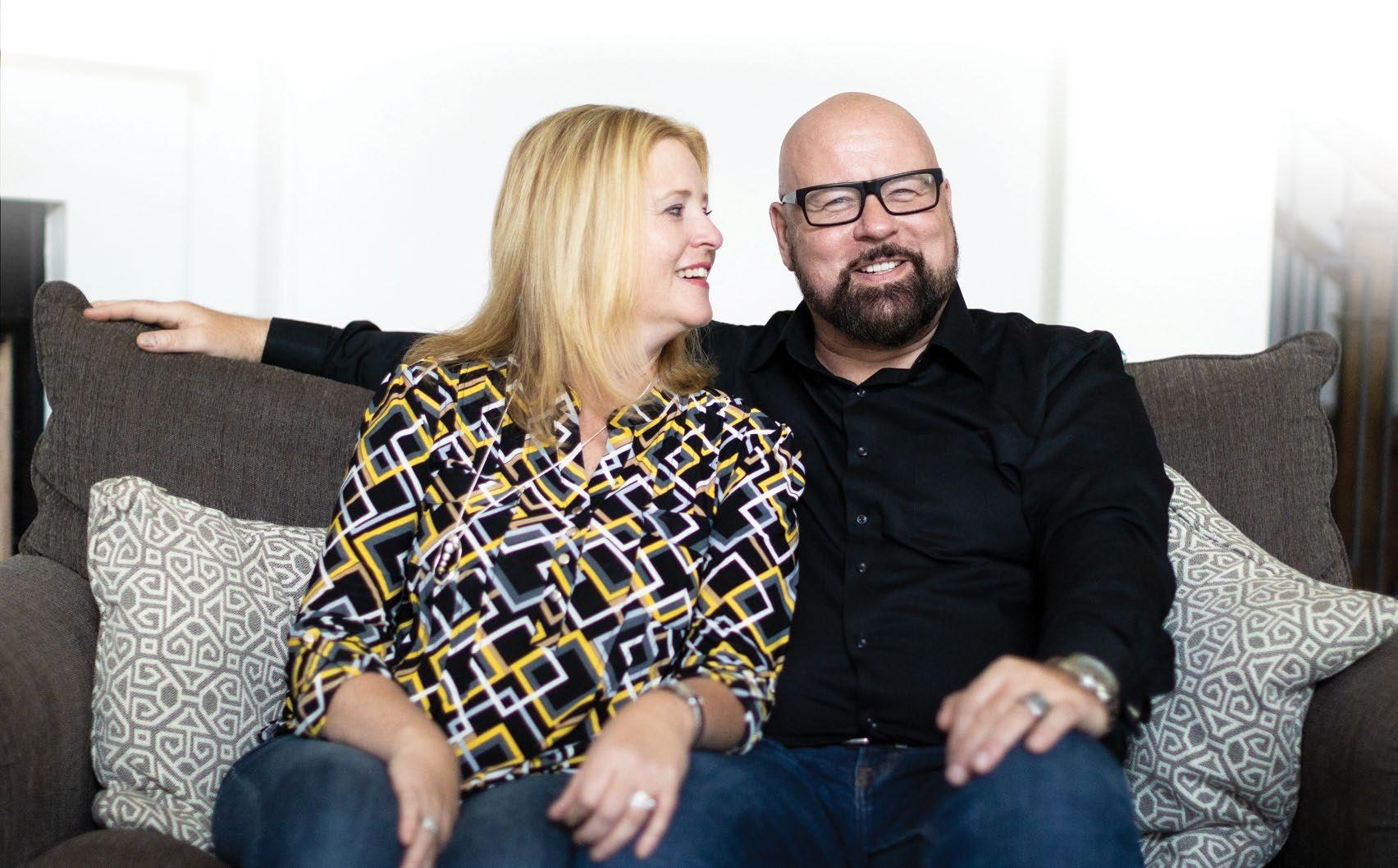
— followed, soon enough, by another hop … into an entirely different kind of ministry.
Andrew’s new church in Kennewick, Washington, included a few police parishioners. His visits with them led to a conversation with their chief, who impressed upon Andrew two ideas: 1) that the police department could use a chaplain, and that 2) becoming one wouldn’t be easy.
“You’ve got to earn your way in,” the chief said, and Andrew set about doing so. He showed up on time, did what he was asked to do, put up with the rough hazing, blue jokes, and endless prodding.
“In that kind of world, the ruder they are to you, the more insulting … those are terms of affection,” he says. “If they’re overly polite to you privately, that keeps you at arm’s distance. It’s not like a ‘Sunday morning’ conversation.” After two years — and still not pleased with his progress — Andrew decided on a more aggressive overture.
The police chief was introducing tasers to his department, with the requirement that anyone using the tasers must first be tased. “Hook me up,” Andrew said.
Normally, the taser was attached to a subject’s ankle, or his shoulder. Andrew asked for both. “Which was the stupidest thing in the world.” Two strapping officers grabbed his arms, somebody flipped a switch, and “I squealed like a 12-year-old boy.” He laughs. “And that won me great favor.” He was in the club.
‘‘
He wanted to get outside the walls of the church and into the community. He wanted to meet people who weren’t Christians.
Renée Fox
The club included a front-row seat to a great deal of death. Traffic accidents. Shootings. Gang violence. Suicides.
“You see the face of death in all of its expressions,” Andrew says. “The text, ‘I am the resurrection and the life’ takes on a different form. Many times, the paramedics would be finishing up, the person’s dead, and you’d be kneeling beside that person, saying the Lord’s Prayer.” The dead person, of course, could hear nothing.
“But those officers can. And that’s sacred.”
“He has a good way of dealing with trauma and crisis,” Renée says. “He doesn’t get emotional, doesn’t go to pieces. He’s not afraid to talk about difficult things. He has a great, compassionate heart.”
Andrew volunteered with the Kennewick Police Department for five years, learning what it took “to be a Christian in that extraordinary environment. It tested your faith to see if you were a snowflake … just a ‘Sunday morning’ guy. I enjoyed that.”
She told him that she didn’t believe in God but that men and women in the fire department needed this resource. She invited him to organize a chaplaincy program, recruit volunteers, and serve as lead chaplain.


Soon, Andrew was back among first responders, and it all came back around: the teasing, the vulgarities, the name-calling. No tasing this time, but he gained a lot of affection when he misjudged the length of a firehouse pole and landed on the floor in a heap. “The environment of a firehouse is a fraternity of college students,” he says. “But when the alarm goes off, they are DC and Marvel heroes. They really are.”
“I have my own process of dealing with things,” Andrew says. “I use the Book of Common Prayer every day.” It reminds you, ‘I believe in God, the Father Almighty, creator of Heaven and Earth.’ And the great punchline is, “… and the life everlasting.”
Andrew worked 24hour shifts at different firehouses, eating in the breakrooms, sleeping on cots, riding the trucks, dealing, again, with death. “I’ve done many in-theline-of-duty deaths, but more suicides,” he says, citing the brutal statistics on firefighters. “They always look fine. But they aren’t fine.”
Life moved on. A few crowded years later, Andrew had a home in Austin, Texas, the start of a successful real estate business with Renée, a growing call for his skills as a business consultant and lecturer on university campuses, ideas for a couple of books, and was working on his Ph.D. He also had an invitation, courtesy of the Kennewick chief, to meet with the chief of the Austin Police Department.
The Austin police already had chaplains, their chief explained … but the Austin Fire Department hadn’t had one for 15 years. Andrew was introduced to that group’s chief: an atheist.
Recognizing that “is the premium of all your responsibilities,” he says. “You live a prayerful life, and discern that ‘something’s not right here.’ There’s a protocol to follow. You get to know someone and, lo, discover they’re going through a horrific divorce, or have lost a child, or something like that. You walk with them … and continue to walk with them.”
“It is being the hands and feet of Christ in extreme situations — fires, car crashes, storm deaths, accidents — which these people have to process.” Some, Andrew knows, do their processing through sex, drugs, and alcohol. “So, you are offering, as Jesus says, ‘I’ll show you another way. A better way.’ And that takes time.”
13
‘‘
He doesn’t get emotional, doesn’t go to pieces. He’s not afraid to talk about difficult things. He has a great, compassionate heart.
Renée Fox
Time, Andrew found, was the key to building, slowly, the relationships that gave him a voice in his firefighters’ pain. But time, for him and his chaplaincy, was about to be cut short.
In between his teaching and lectures, real estate and travel, books and church work, there is his blog. It’s something Andrew’s students and friends encouraged him to write, and he does, applying his thoughts, insights, and theology to the subjects that interest him most.
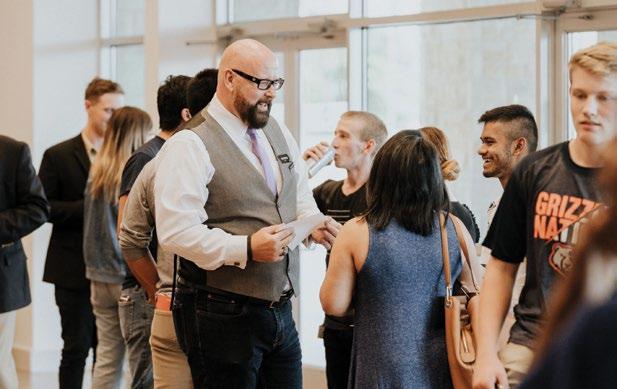
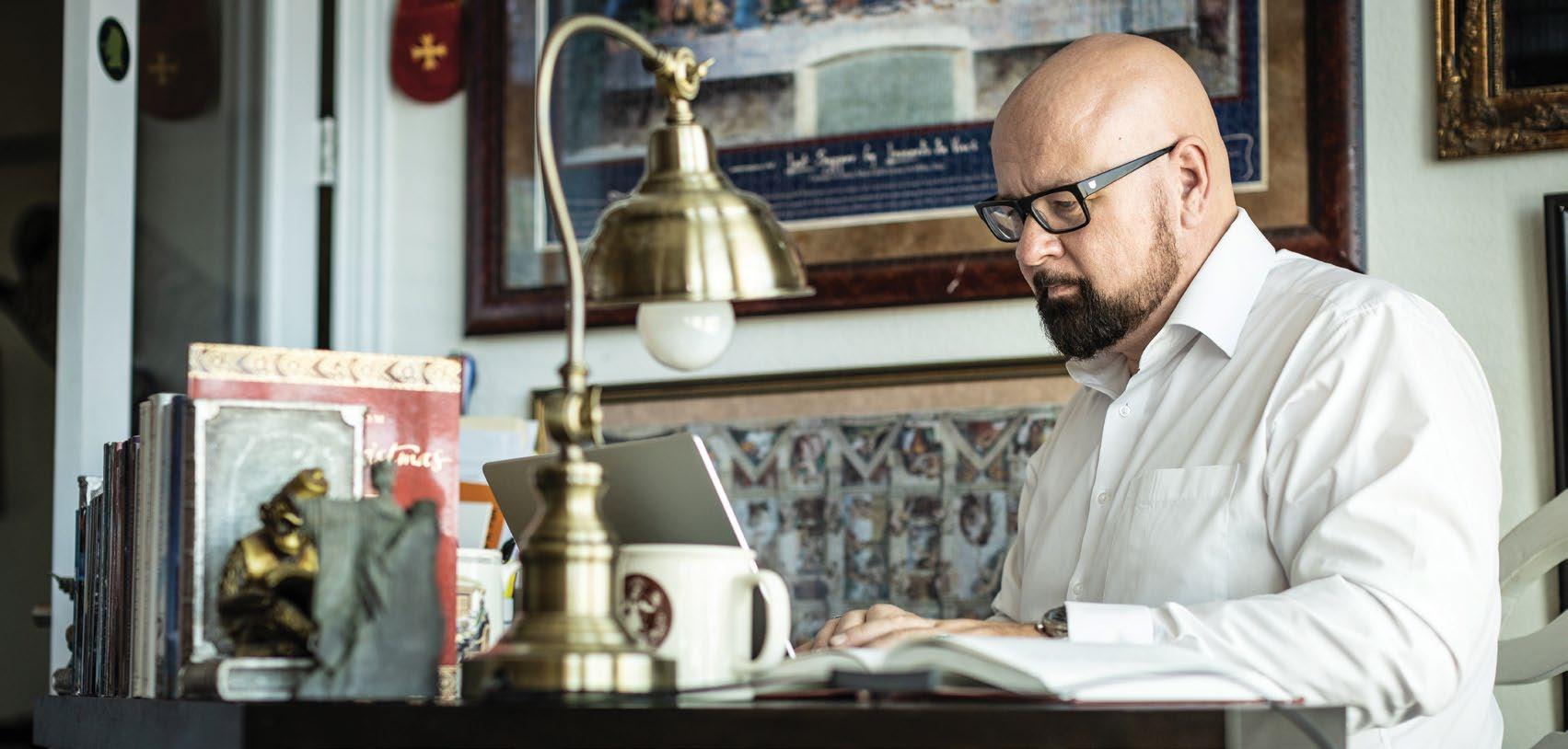
The blog has nothing to do with his work as a chaplain, so he never mentioned it to the firefighters he worked with. He doesn’t think they even knew about the blog. Certainly, none of them ever mentioned it. Until, one day, someone did.
The comments came after a post Andrew wrote about men who identify as women and then compete in women’s sports. He offered historical and Christian perspectives on women’s athletics, cited several female athletes’ concerns about men competing in women’s sports, and expressed his own enthusiastic support for women athletes. He also explored the differences between equity and equality, and “social” and biblical justice.
A few weeks after he posted the entry, Andrew was surprised to receive an invitation to discuss it with the chief and assistant chief of the fire department. At the ensuing meeting, the two officials assured Andrew that they didn’t want to interfere with his blog or censor him in any way. But … his post had apparently offended some LGBT members of the department.
What specifically offended them? Andrew asked. The officials said they didn’t know. Nor did they ask him to take any action in response. At the end of the meeting, they did ask him to pray.
Andrew suggested a meeting with an LGBT liaison to discuss things. The meeting was arranged. The liaison declined to identify what exactly was so offensive in the blog post, talking instead about the bullying and mental health problems experienced by many people who identify as the opposite sex.
Andrew, trying to better understand those concerns, offered to meet again. Meanwhile, he had already taken his blog offline, until he could clarify the problem.
At the second meeting, the LGBT liaison shared some personal experiences — but still did not explain what was so upsetting about Andrew’s blog post. He assured the
14
“Why don’t you write?” his students used to ask Andrew — a question echoed by his teaching colleagues. At their urging, he launched the blog on which he shares his personal insights and reflections.
liaison that he’d be happy to talk with anyone troubled by his writing. Then, still unable to clarify any specific problem, he put the blog back online.
That prompted another meeting with the assistant fire chief, who, this time, presented Andrew with copies of his blog entries, annotated with anonymous comments, complaints, and accusations of male chauvinism, racism, and transphobia. Some questioned how the department could continue to draw on the services of a man who would say such “hateful” things.
The fire chief, Andrew was told, wanted him to write an official letter of apology to the LGBT community of the Austin Fire Department.
Eight years, Andrew Fox had served as a volunteer chaplain. In all of that time — living and working up-close with hundreds of firefighters of many races, including both men and women and a number who identified as LGBT — not one complaint had ever been filed against him. In fact, he had been formally commended for exemplary service.
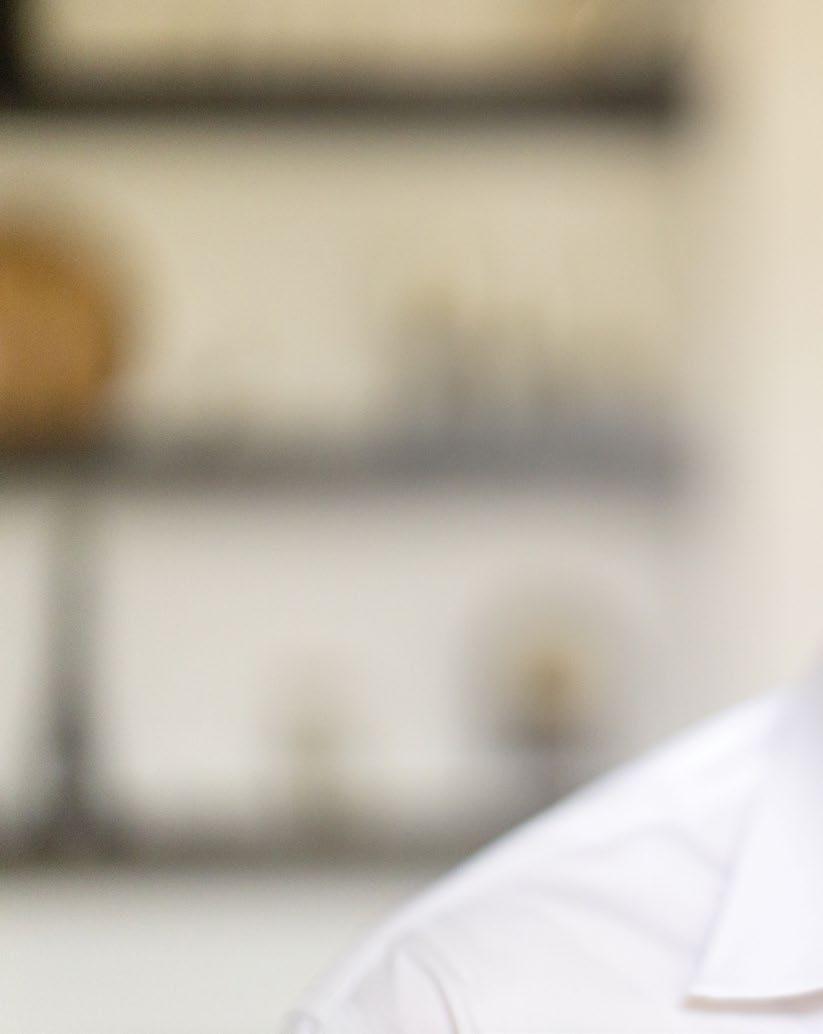
In a group as tight-knit and close-quartered as firefighters are, “if you’re a secret anything, it will come out,” Andrew says. “There’s no way of hiding in such close proximity.” The people of the department could not pretend to have misread Andrew’s character.
Their objection, then, was to his personal religious beliefs — recorded on a private blog, on his own time, with no relation whatsoever to his work with the department. In effect, he was being told to recant those beliefs, in an open letter to the City of Austin, as a matter of public record.
Andrew offered to apologize to anyone whose feelings were hurt — but not for what he believed. With that refusal, he says, “The die was cast.”
The termination letter, when it came, explained that Andrew’s firing was necessary “to ensure that all of the Department’s volunteer chaplains provide a comforting and welcoming presence and service for any and all firefighters and Department employees.”
No “thank you.” No recognition for time served, sacrifices made, or lives saved by Andrew’s many hours of dedicated volunteer service. He wasn’t even allowed the tradition of keeping his uniform. The department had him stuff it in a plastic bin liner and leave it on the front step of his house.
“I wish they had stripped it from me,” Andrew says. “It would have been more honorable.”
Andrew struggled to find an attorney willing to help him take legal action. Finally, someone suggested Alliance Defending Freedom. Andrew reached out and was immediately impressed.
“This delightful lady called,” he remembers. “She spoke to me with such dignity and respect. From that day to this, it’s been like … ‘wow!’ They know what they’re doing. I follow their counsel. And I can sleep at night.”
ADF attorneys filed suit on Andrew’s behalf in federal district court, citing Austin officials for retaliating against him for exercising his First Amendment right to share his religious views and opinions on his personal blog.
“The government can’t do that,” says Hal Frampton, senior counsel with the ADF Center for Conscience
15
WATCH Andrew Fox share his story at ADFlegal.org/fj-fox
He went above and beyond to be understanding and to serve others. But no amount of compassion he showed to others was enough … because he didn’t compromise. ‘‘
Kelly Howard, ADF Legal Counsel
‘‘
[Andrew] is the right person to go through this. He knows what he is fighting, and he’s got no fear.
Renée Fox
Initiatives (CIC). “But that’s exactly what they did. They fired him because they didn’t like his views. We are asking that they right that wrong by reinstating him to his position.”
ADF attorneys say the case is important because it involves the ability of Christians to express their faith without losing their jobs. “There’s a hard line there,” Frampton says, “and our job is to convince the court that religious people are allowed to disagree with broader culture without being kicked out of public service.”

“You look at how clean Andrew’s record was,” says Kelly Howard, legal counsel with the CIC. “He did everything right. He was trying to reach out to people — even those who had different perspectives on the topics in his blog posts. He went above and beyond to be understanding and to serve others. But no amount of compassion he showed to others was enough for the
city, because he didn’t compromise. He didn’t change his beliefs and recant.”
Frampton says that hard line is at odds with how much of himself Andrew poured into a voluntary position, “the incredible investment of time and resources, and generosity of spirit. He was willing to spend what should have been his free time with firefighters, handling the most gruesome scenarios you can imagine … just to make sure that the people who take care of all of us have someone to take care of them.
“Clearly, this role was incredibly important to him,” Frampton says. “A calling. To have it yanked away from him — not because firefighters were unhappy or because he was ineffective, but because city administrators didn’t like his religious views — just cut him to the quick. It took away a large part of what God has called him to do.”
“It was his identity,” Howard says. “A huge part of how he would have described himself, if you’d met him before this. And now he doesn’t have that anymore.”
The Austin Fire Department still has two chaplains volunteering, but without their leader, Howard says, “there seems to be a lack of cohesiveness to the program now. Andrew put in the time. He was doing so much for the program that his loss is felt distinctly. Over the years, he built trust with the fire department. You can’t really turn trust on and off. That’s why he still gets so many calls.”
The calls come, as they always did, at all times of the day or night. A family has died. A firefighter’s girlfriend killed herself. A woman is trying to find her way out of an affair. Many don’t care that Andrew is no longer with the department.
“To get those calls,” Renée says, “and know you can’t go. And know nobody else will, either.”
Andrew, she says, understands that the issues at stake are larger than himself. “This is about every other pastor and chaplain who will face this down the road,” she says, which is why her husband “is the right person to go through this. He knows what he is fighting, and he’s got no fear.”
No fear, but in truth, an anger — not at any individual, Andrew says, but “at a situation.” He’s learning, he says, “to take that to God in prayer. And there is peace — not a solution, but peace. I don’t know where all that’s going to go. But it’s like Mary’s prayer: ‘Let it be done to me, according to your word.’ ”
Meanwhile, driving down the highway, he passes the same blue, flashing lights he used to stand in the glow of. He knows there is death there. Knows he could do something — but realizes that, for now, he can’t.
So, he drives on, praying God will restore his missing piece. For his own sake, and the sake of those he used to serve.
16
‘‘
The government can’t do that.... They fired him because they didn’t like his views.
Hal Frampton, Senior Counsel ADF Center for Conscience Initiatives
I Survived A Failed Abortion Attempt
By Melissa Ohden
Some people find it impossible to believe my story. At the annual March for Life a few years ago, I held up a sign that revealed the shocking truth about my birth: “Aborted & survived. Ask me about my rights as a woman.” My pre-teen daughter, standing beside me, held a companion sign: “Alive because my mom survived.”
A woman frowned as she stood nearby, shaking her head as she examined the words. My daughter locked eyes with her, nodding “yes” in response. The woman’s headshaking grew more emphatic, as did my daughter’s nods. Finally, my daughter told her plainly, “Yeah, my mom survived an abortion.” But the woman kept shaking her head. No
I understood her skepticism. I once had a hard time believing it myself.
As a small child, I enjoyed a normal, happy childhood. Growing up in Iowa, I was part of an adoptive family with a mom, a dad, and a big sister who was my nearly constant companion. My sister and I were raised to think of adoption as a gift. I counted myself doubly loved — by the parents who had chosen me and by the birth mother who had given me over to their care.
But that tidy story began to unravel when I was 14 and my sister shouted in the middle of an argument, “You know, Missy, at least my biological parents wanted me!”
I felt like the wind had been knocked out of me. What did that mean? That night, still shaken, I approached my mom for answers. It took hours for her to finally say the words: “Missy, your biological mother had an abortion during her pregnancy with you … and you survived it.” I was stunned. I didn’t know that abortions could fail, that babies could live after someone tried to end their lives.
Years went by before I learned the full story.
My birth mother, Ruth, was a 19-year-old college student when she went to a hospital in Sioux City, Iowa, for a saline abortion. The procedure involved injecting a toxic salt solution into the amniotic fluid surrounding me,

17
My View
‘‘
It took hours for her to finally say the words: ‘Missy, your biological mother had an abortion during her pregnancy with you … and you survived it.’
Melissa Ohden
intended to poison and scald me to death. I soaked in that toxic solution for five days. On the fifth day, I was finally expelled from the womb … still alive.
Weighing less than three pounds, I was laid aside to die. Then a nurse noticed my weak cries and rushed me to the NICU. Against all odds, I survived.
Learning the truth about my birth left me feeling ashamed, hurt, and angry. Had my biological mother really thought so little of me, to try and end my life that way?
At first, I wanted to distance myself from the pain. I began abusing alcohol and developed an eating disorder. Eventually, though, I let go of my bitterness and chose to be grateful — knowing I was loved by my adoptive family and valued by the God who had created me.
In 2019, I launched the Abortion Survivors Network, which offers support to survivors of failed abortions while educating the public that such survivors exist. So far, the network has connected over 600 abortion survivors, many drawing quiet comfort from knowing others with a birth experience like their own. Others have chosen to share their story publicly.

As our network grows, so does awareness that abortion survivors exist. When I began sharing my story in the early 2000s, a common response was, “Oh, that didn’t happen. She must be a liar.” But now we have this growing community, with more and more survivors telling their stories. And it’s harder to discredit when it’s not just one story, but a phenomenon affecting an entire population.
This year, we’re working to enlist ambassadors from every state in our network. They will be trained in how to advocate for life, particularly for born-alive legislation that offers legal protection to newborns who survive abortion attempts. This is already happening on a small scale, but we’re taking it to a whole new level. We’re giving survivors the opportunity to be seen and heard.
When I was 19, I embarked on what would be a decade-long search for my biological mother. When we finally connected by email, I learned that she had spent 30 years believing I had died that day at the hospital. Three years later, when we finally met in person, I was struck by the regret I saw in her eyes.
Ruth had never wanted an abortion. The decision had been forced upon her by her mother, a prominent nurse in their community, with the help of a colleague who was the local abortionist. After I was born, it was my grandmother who told her colleagues to “leave the baby in the room to die.” Apparently convinced she’d made the right decision, my grandmother openly shared this with family members.
By chance, Ruth and I both live in Kansas City, along with one of my biological half-sisters. We see each other regularly, and I consider my biological family an important part of my life.
Around the time I connected with my birth mother, I began sharing my story publicly — first on college campuses, then more broadly. Sometimes I heard from other survivors, and discovered that many were struggling with the same kind of trauma I had experienced after learning the truth about my birth.
“Lord,” I prayed one day, “somebody’s got to do something about all these needs that survivors have.” Then I realized that “somebody” was me.
That testimony is powerful in a culture hardened to the violence of abortion after 50 years under Roe v. Wade’s deadly rule. We can talk about the humanity of the unborn child, but no one understands the brutality of abortion like someone who’s survived that attempted murder. Our stories are a compelling reminder that abortion is not about a “choice,” but a child
18
‘‘
When I began sharing my story in the early 2000s, a common response was, ‘Oh, that didn’t happen. She must be a liar.’
Melissa Ohden
Melissa Ohden and her daughter, Olivia, at the 2020 March for Life
Photo by Emily Green. Used with permission by the March for Life Education and Defense Fund.
Q&A Erin Hawley
After Roe: The Continuing Challenge Of Defending Life In America
By Jane Scharl
Erin Hawley is senior counsel on the appellate team at Alliance Defending Freedom. She served as counsel to Mississippi for Dobbs v. Jackson Women’s Health Organization, the landmark U.S. Supreme Court case that overturned Roe v. Wade. Before joining ADF in early 2021, Hawley practiced appellate law at several Washington, D.C., law firms, litigating extensively before the U.S. Supreme Court. She also worked at the Department of Justice, as counsel to Attorney General Michael Mukasey. She is a frequent commentator on legal issues. Her work has been featured in The Wall Street Journal, US News, USA Today, Fox News, and the Washington Examiner, among others.

The mother of three children, Hawley has also written a book on motherhood, Living Beloved: Lessons From My Little Ones About the Heart of God.
F&J: The focus of your legal practice for almost a year was the Dobbs case and serving as counsel to Mississippi. How did you first become passionate about the life movement?
EH: I have been pro-life ever since I was young. But my passion for the issue deepened immensely when my husband and I had our own children. The experience of being pregnant, and of getting to know my babies in the womb — feeling them kick and even hiccup — was amazing. I remember seeing one of our babies at eight weeks on an ultrasound and falling in love with this little person. It made me want to work even more to protect the rights of the unborn, and to help and support their mothers.
F&J: What was ADF’s involvement in Dobbs?
EH: ADF was privileged to be involved in Dobbs from its inception. In 2018, Mississippi passed the Gestational Age
Act, which protects life after 15 weeks, and ADF worked with the state on drafting the Act. When groups started challenging the law, we strategized with the state attorney general to defend it. When the Supreme Court agreed to hear Dobbs, I worked with Mississippi on behalf of ADF to assist with preparing briefs and to help the solicitor general, Scott Stewart, as he prepared for oral argument.
F&J: Pro-life organizations, including ADF, had a goal of overturning Roe for five decades. What made this the right timing?
EH: This case was truly 50 years in the making, and not just in the courts — God’s hand was at work in people’s lives to prepare them for this. For example, the state sponsor of the Mississippi Gestational Age Act was State Rep. Becky Currie. As a young nurse, Rep. Currie delivered a 15-week-old baby who, tragically, was not viable. She held that baby in her arms and watched her struggle to live. She was so impacted by that experience that when she had the chance, years later, to stand up for life, she did. Dobbs would not have happened without her. God positioned the right people at every stage. In an unusual
19
‘‘
This case was truly 50 years in the making, and not just in the courts — God’s hand was at work in people’s lives to prepare them for this.
Erin Hawley
twist, the Dobbs case sat on the Supreme Court’s docket for nearly a year — most cases are either denied or granted review much sooner. In the intervening months, Justice Barrett was confirmed to the Supreme Court, ultimately providing a crucial fifth vote to strike down Roe. When the Supreme Court finally granted Mississippi’s request to review the case, both the attorney general and solicitor general of Mississippi were new. And they were adamantly pro-life. Mississippi’s legal team decided not only to defend Mississippi’s law but also to ask the Supreme Court to overrule Roe v. Wade — a brave and controversial decision, as many people believed the Supreme Court would never overrule that case. At each step of this litigation, God was clearly at work paving a way to this incredible victory.
F&J: Following the Dobbs ruling, you testified before the House Oversight Committee about the decision’s impact. What were key points you made during your testimony?
EH: I was especially glad to clarify that treatment for a miscarriage or an ectopic pregnancy is not an abortion. Every single state has exemptions for tragic circumstances involving ectopic pregnancies, miscarriages, and threats to the life of the mother. It’s easy to see why: in these situations, doctors do everything they can to save the life of the mother and the life of the baby. In an abortion, the goal is to destroy a life.
Until this past summer, Planned Parenthood said on their website that treatment for an ectopic pregnancy is not an abortion. Now they’ve pulled that down, presumably because scaring expectant moms is politically advantageous. But the truth — which even Planned Parenthood acknowledged up until a few months ago — is that treatment for ectopic pregnancy or miscarriage is not an abortion under any state’s law. Under laws that protect life, mothers experiencing ectopic pregnancies or miscarriages will be able to get the care they need.
F&J: Abortion is still legal in many states. What are the major battlefronts pro-life organizations face as they continue the fight to protect the unborn?
EH: It is not often that you get to see the immediate effect of a Supreme Court decision. But the day Dobbs was decided, states were finally empowered to protect life. There will be more children born in the United States tomorrow because of Dobbs. Unfortunately, the pro-life laws of many states have already been put on hold by state court judges making the very same mistake the Supreme Court made in Roe — fabricating a right to abortion. ADF is working with 10 of those states to defend pro-life laws and to allow them to protect life and empower women. Of course, a number of other states are already aggressively promoting abortion up until birth — for any reason. ADF is explaining how radical this is. With these extreme laws, these states are putting themselves in the company of nations like China and North Korea. That’s something citizens deserve to know.
F&J: One last question: when the Dobbs case was active, you often traveled with your youngest child, then around 6 months old, to support the legal effort. What made this significant?
EH: That part of the adventure was both hard and wonderful. As most moms know, it’s tough to travel with an infant. On my first trip to Mississippi, I was waiting with Abigail for a critical meeting to discuss legal strategy. The babysitter hadn’t arrived, and she needed a nap, so I walked her around the hotel until she fell asleep. I covered her stroller with a light baby blanket and parked her in a corner of the conference room as our ADF team dived into legal strategy. That is, until Abbi woke up screaming. I was a little embarrassed, but it really brought home to me — and to all of us, I think — why Dobbs matters. Every single child that we are fighting for is as precious and unique as my daughter. Every one of them deserves life, and it is an honor and privilege to be able to advocate for them.

20
Erin Hawley
The pro-life laws of many states have already been put on hold by state court judges making the very same mistake the Supreme Court made in Roe — fabricating a right to abortion.
‘‘
Erin Hawley
Opinion
This Professor Was Fired For Writing A Harmless Joke
By Tyson Langhofer
The joke was actually pretty funny. But because some university officials couldn’t find humor in it — and respect a good-natured difference of opinion — their response cost them $165,000.
The incident occurred at the University of North Texas, after someone left a stack of flyers warning about “microaggressions” in the math department’s faculty lounge. Math professor Dr. Nathaniel Hiers stopped by the lounge one afternoon, inspected one of the flyers, and made an attempt to express his views about its content.
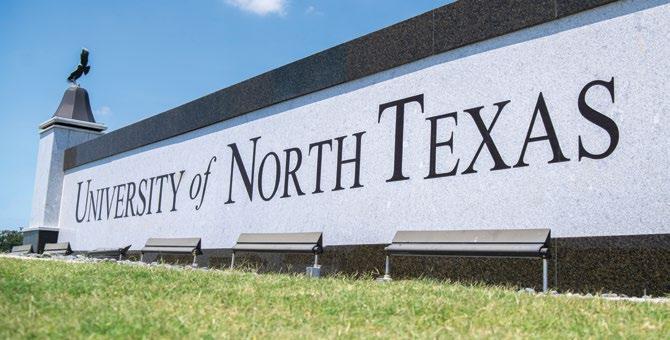
professors falling out of line and expressing a view different from his own.
After reprimanding Hiers for “cowardly” and “stupid” behavior, the department head canceled his contract to teach the following semester. When Hiers asked why his job had suddenly been terminated, his boss said it was because he had criticized the flyers, refused to recant his views, and had not expressed “honest regret” about his actions.
What did these flyers say, that they should be embraced without question? First, the handouts described microaggressions as “verbal and nonverbal behaviors” that “communicate negative, hostile, and derogatory messages to people rooted in their marginalized group membership (based on factors such as gender, race, ethnicity, sexuality, etc.).”
The flyers identified statements such as “America is a melting pot” and “I believe the most qualified person should get the job” as examples of microaggressions that propagate the “myth of meritocracy” and promote “color blindness.”
As is common in teacher lounges, a good deal of banter is prevalent in this casual setting where professors eat and chat. In that spirit, Hiers jokingly wrote on the chalkboard, “Don’t leave garbage lying around” and drew an arrow pointing to the pamphlets.

But the new head of the math department couldn’t take the joke. And he couldn’t stand for one of his own
Hiers believes the concept of microaggressions actually hurts diversity and tolerance. This mode of thinking teaches people to see the worst in others and promotes a culture of victimhood. But at UNT, he was fired for sharing that view, even in a casual setting among his peers.
Officials said Hier’s actions were “not compatible with the values of this department.” But the writing on the wall — er, chalkboard — is obvious: The actual reason university
21
officials fired Hiers is because they found his personal viewpoint on this issue objectionable. The message was clear: “Agree with us or else.”
Alliance Defending Freedom attorneys represented Hiers in a lawsuit against the university. In a victory for free speech, the university agreed to pay $165,000 in damages and attorneys’ fees as part of a favorable settlement.
As crazy as this story seems, it isn’t uncommon. And it’s not just professors who are being punished for expressing views officials find objectionable. ADF’s Center for Academic Freedom team regularly receives requests from students who also face discrimination because of their conservative or religious viewpoints.
Take Maggie DeJong, for example. Maggie was an art therapy graduate student at Southern Illinois University Edwardsville before graduating last year. Like many other young people, Maggie frequently posted her thoughts on social media and engaged in class discussions on an array of topics including politics, COVID-19 regulations, and critical race theory.
But because her views, which were informed by her Christian faith and conservative political beliefs, often differed from those of other students in the art therapy program, some of her classmates reported her to the university. They complained that Maggie’s speech was “harmful” and constituted “harassment.”
In response, university officials issued no-contact orders against her, prohibiting her from having any contact or even indirect communication with three fellow graduate students. ADF filed a lawsuit on her behalf. The case is still pending.
Rather than accept and embrace diverse ideological perspectives, university officials in both Hiers’ and Maggie’s cases were determined to force individuals to think and speak exactly like them. It’s a sad day for civil dialogue and freedom of speech when government officials illegally and unconstitutionally clamp down on what you say — in a faculty lounge, in class, or on your personal social media platform.
To flourish like they once did, universities across America must restore their role as a marketplace of ideas — not an echo chamber for a single viewpoint.
Tyson Langhofer is senior counsel with ADF and director of ADF’s Center for Academic Freedom.
What Is A Microaggression?
A relatively new term, the word “microaggression” refers to a statement or action, often innocent or unintentional, that is interpreted as conveying a covert insensitivity or hostility toward a member of a marginalized group such as a racial minority.
The concept has become an important and contentious issue at universities and colleges across the country. The vague definition, especially its broad application to unintentional acts, pressures students and professors to be overly cautious, unsure if something they say will offend a classmate or peer and be labeled a “microaggression.”
Example: Someone may say “America is a melting pot” to convey that America blends many different cultures, races, religions, and other people groups together in a way that is beneficial to everyone. But some might call that statement a “microaggression” on the assumption that the individual intended to minimize racial, cultural, or other value differences.
22
‘‘
It’s a sad day for civil dialogue and freedom of speech when government officials illegally and unconstitutionally clamp down on what you say.
Tyson Langhofer
‘‘
The message was clear: ‘Agree with us or else.’
Tyson Langhofer
VISIT: Learn more about how the Center for Academic Freedom is defending campus free speech at Centerforacademicfreedom.org


Pass on a legacy of freedom. Please contact ADF Foundation at 800-835-5233 or GiftPlanning@ADFlegal.org to discuss your legacy giving. Visit ADFFoundation.org for more information. “The religious freedom we have enjoyed must be preserved. Our investment in ADF is an expression of our commitment to the Gospel of Jesus Christ.” — Bill & Lyra H.






































